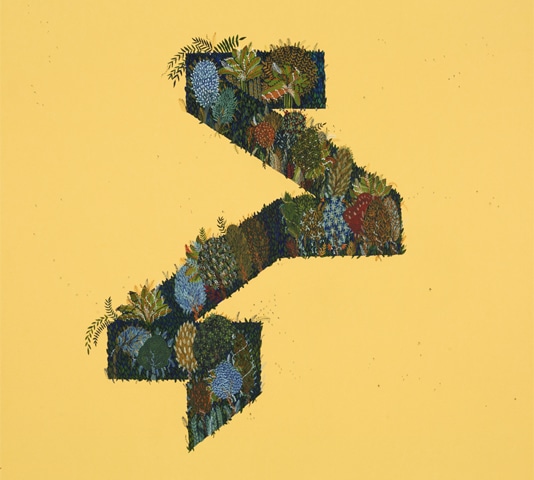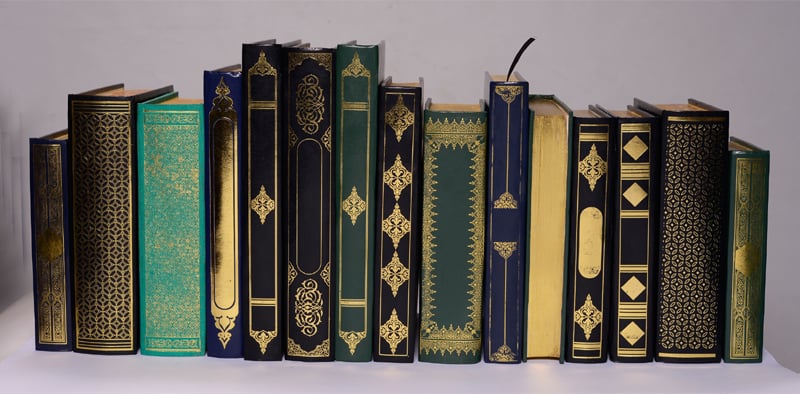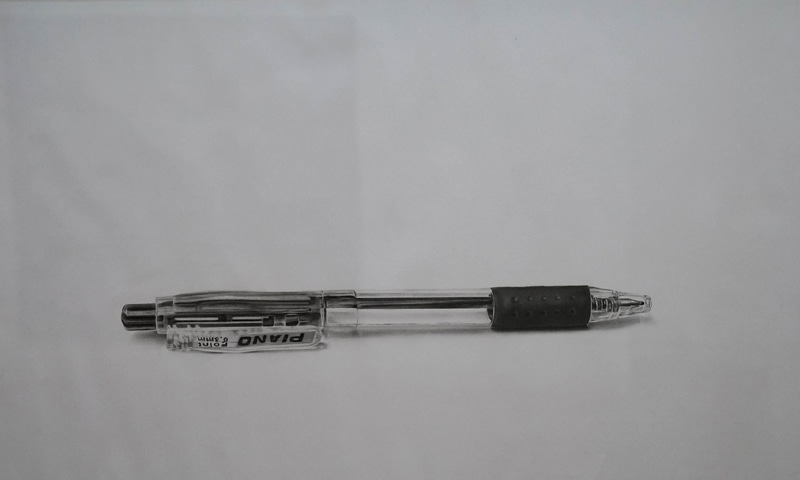EXHIBITION: A CREATIVE MELTING POT

As one walked into the buzzing new space of the Grosvenor Gallery for the preview of Multiple Narratives, a group show of eight emerging Pakistani artists brought to London in collaboration with the Canvas Gallery of Karachi, one thing was obvious: Pakistan has its fair share of highly skilled artists. And their skill isn’t limited to practice in a certain media but in a variety of media — be it oil, charcoal, calligraphy or the historic genre of miniature painting.
The artists who showcased their work in the exhibition were Imran Mudassar, Mahbub Jokhio, Muzzamil Ruheel, Noor Ali Chagani, Sajjad Nawaz, Salman Toor, Wardha Shabbir and Yasser Vayani. Each artist displayed works depicting their unique style of art-making and their individual set of interests. The preview of Multiple Narratives included a discourse by art historian and critic Dr Virginia Whiles. Her talk emphasised the prevalence of a miniature-esque aesthetic and the intrepid content of up-and-coming Pakistani art.
An exhibition in London highlights the direction emerging Pakistani artists are taking
At a time when the genre of painting is struggling to find a unique expression, Toor’s work is reminiscent of the impressionist master Manet. His work is illustrative and representational, using acquaintances and life in the city of Lahore as his subject, exemplified in his painting ‘The Picnickers’. He also has a text piece, titled ‘Boom’, included in the exhibit. At first glance, it looks like a speech bubble out of a comic strip, with sharp edges. This piece is filled with writing from the artist’s diary as well as books he has read. Fiction written by Pakistani authors also serves as inspiration for his work. The text is both in Urdu and English, and mostly small and indiscernible. According to Toor, this piece is a non-representational narrative, just like novels.

Vayani has four pieces in the show. His works mainly constitute text that make up shapes of found objects. The writing in his drawings is at once the imagined past of the objects and a narration of how they came to be found. Vayani’s conceptual trajectory allows one to experience the passage of time.

Both Shabbir’s and Chagani’s works relate to the genre of miniature painting. Shabbir’s art is executed in the traditional style of miniatures. Her paintings ‘Siraat-e-Shajjar I, II and III,’ depict pathways lined with trees found in her home city of Lahore. Her inspiration for these paintings arose when she first used Google maps to navigate her way around London.

Chagani’s work, on the other hand, bears reference to miniature in its scale and laborious process but is visually very unique. His sculptural pieces are miniature replicas of boundary walls found in the various cities of Pakistan, plastered with advertisements and public expression. He uses the traditional method of brick-making to create tiny bricks, the raw material for his walls.

Ruheel has two pieces in the exhibition and even though they do not directly reference miniature painting, the use of Wasli paper, calligraphy and found images, lend the work a miniature-like quality. The triptych titled ‘The Night of the Storms’ has three pieces of varying sizes. The first is an organic shape of overlapping calligraphic text and gold paint, the second is a man’s portrait covered in illegible, overlapping calligraphy in the shape of a thumb-print and the last piece illustrates an animal composed of calligraphic text. These ornamental pieces borrow text and imagery from the media, historic archives of culture and art.

Most of the work in Multiple Narratives is moderate in scale and fits well in the intimate gallery setting. However, Nawaz’s stunning charcoal diptychs ‘Across the Sea I and II’, depicting the sky with what seems like a tornado brewing, are at a slight disadvantage in the gallery space. You need to take a step back to fully appreciate these expert drawings. With his beautiful, highly-skilled realistic rendering of waves and clouds, Nawaz aims to capture form, shape and texture found in nature.

Jokhio’s exceptional, hyperrealistic, larger-than-life charcoal drawings challenge perception and notions of recognition. He makes slight alterations to commonly recognised objects and only a very keen eye will be able to decode the irony and humour hidden in his drawings. In this exhibition he has two almost identical drawings, ‘Blue Pen’ and ‘Red Pen.’ These black-and-white charcoal pieces are identical save for the depth of the colour black on the grip of the pen.

Mudassar’s work titled ‘The Holy Invitation’ consists of a number of beautiful leather-bound ornate books, with Islamic symbols and motifs decorating the covers. However, the books are either blank or contain secular text in an attempt to surprise and invite the viewer to an alternate experience of belief.
“Multiple Narratives” was displayed at the Grosvenor Gallery in London from January 27 to February 16, 2018
Published in Dawn, EOS, February 18th, 2018